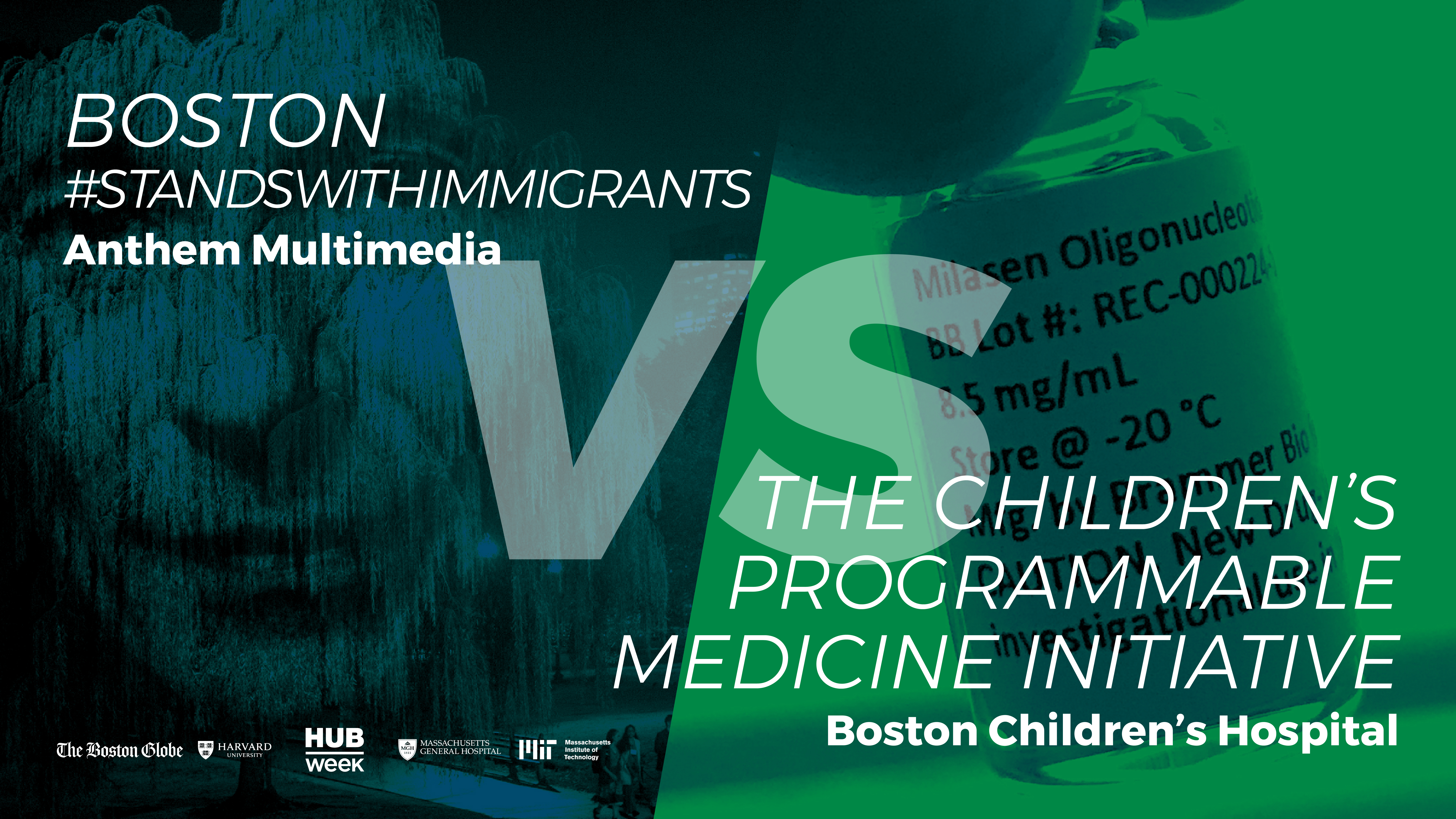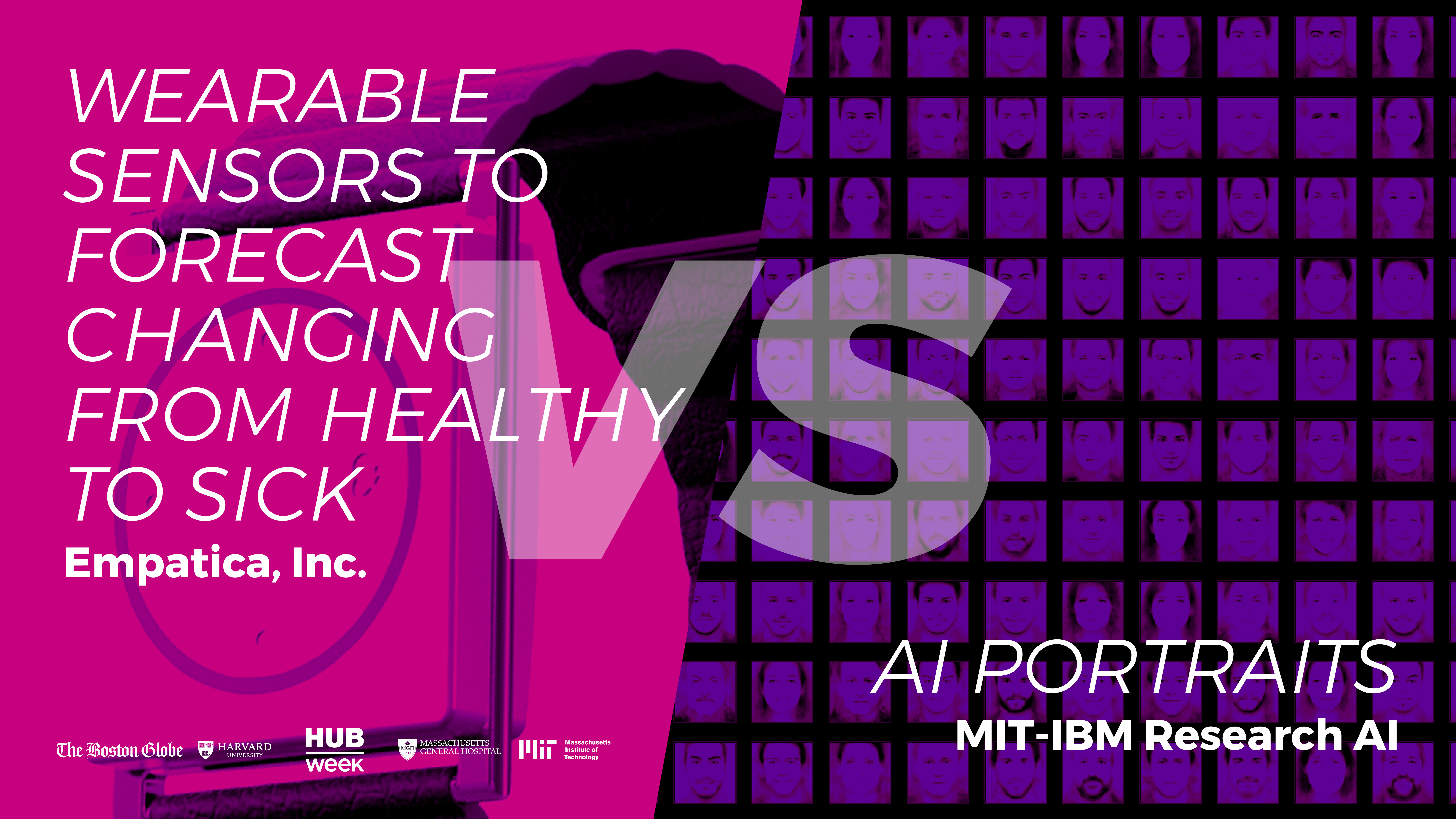Time is ticking on the Four FTW (For the Win!) semifinalists in HUB Madness 2019 presented by BNY Mellon. The bracket competition began with 32 participants across four categories — art, science, tech, and wildcard — and has since been narrowed down to the last four projects standing — the coolest from each of the categories.
Unsure of who to vote for? We've put together a handy guide about the Four FTW below.
 |
 |
Art
Boston #StandsWithImmigrants is an immersive art project working to change the narrative of immigration in Boston by projecting giant images of immigrant Bostonians around the city. In a recent lightning interview, Erik Jacobs, Principal at Anthem Multimedia and the artist behind the project, shares his inspiration: "The idea came from an intense feeling of sadness and frustration following the election in 2016 and the travel bans that quickly followed. I was upset about the message it was sending to the rest of the world and wanted to project (pun intended) a different story about the welcoming and inclusive country I know and love."
Read Jacobs' full interview now.
Science
The Children's Programmable Medicine Initiative developed a live-saving personalized gene therapy in mere months. A team at Boston Children's Hospital is developing a pathway to offer tailor-made treatments to help children with rare genetic diseases. Dr. Timothy Yu, the lead researcher behind the initiative, explains why the project is so revolutionary: "Most of the time, precision medicine refers to choosing the right medicine for the right patient. This is certainly a worthwhile thing to do. In our case, we are not picking the right medicine — we are designing and manufacturing entirely brand new medicines for each patient, based on their genetic code. These are the world’s first examples of truly personalized medicines."
Read Dr. Yu's full interview now.
Tech
Empatica's wearable sensors tell you when you're getting sick before the first symptoms even appear. The smart watch, developed in collaboration with the U.S. Government's BARDA Division of Research, Innovation, and Ventures (DRIVe), can alert users when they are developing a serious respiratory infection. Chelsea Trengrove, Empatica's Program Manager, reveals what's next for this technology in 2019: "Right now we have to focus on collecting enough quality data to make for meaningful machine learning. We’re hopeful that this initial study will give us the building blocks to start developing an algorithm to help you know how sick or well you really are."
Read Trengrove's full interview now.
Wildcard
AI Portraits is a platform that shows us what happens with artificial intelligence collides with our own understanding of ourselves. Trained on millions of photos of actors and actresses, the AI will recreate your photo based on what it understands about faces, producing a "celebrity" version of you — and simultaneously revealing how AI's work. Mauro Martino, the lead Northeastern researcher, explains where the idea for AI Portraits came from: "I have always been fascinated by the communicative power of portraits. There is a historical significance of the human portrait: It outlines the evolution of digital and analogical media. Whenever we have a change in our visual and aesthetic codes, whenever we have a technological advancement, the first repercussions are reflected in the style and technique of portraits. The portrait becomes a barometer that we use to test the aesthetic taste of the times."
Read Martino's full interview now.
Now that you're fully caught up on the Four FTW, cast your vote in HUB Madness 2019!
